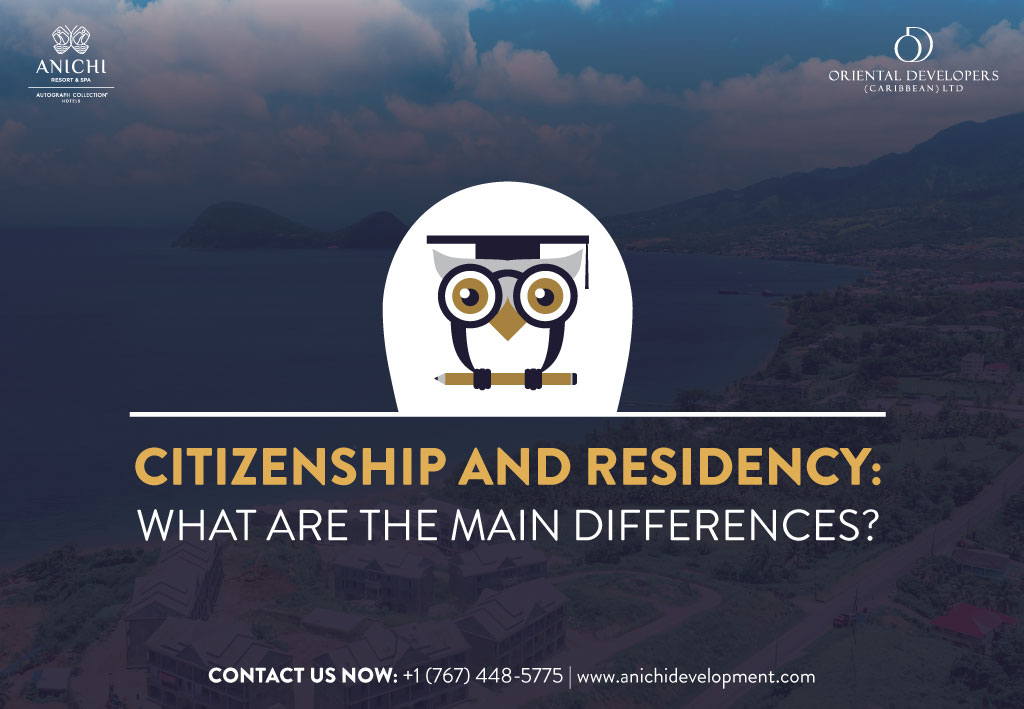

Dominica
When considering the options for moving abroad to facilitate movement around the world, improve the business environment and ensure a secure future for yourself and your family, you will invariably come across immigration terms such as residency, golden visa, citizenship, and it is important to understand that these are not equivalent concepts, differing from each other by a set of privileges and obligations.
Residency is a permit that entitles a person, who is not a citizen of a given state, to free entry and exit, as well as long-term residence in the country, subject to the agreed conditions.
With residency obtained, a person does not acquire the status of a citizen, therefore cannot enjoy all the privileges available to citizens of this country: for example, to participate in elections or hold public office. Moreover, the legislation of some countries does not always allow for the change from a residency status to citizenship.
Wealthy foreigners generally can choose the purpose of obtaining a residency status: for living without the right or with the right to work, with the opportunity to conduct business, study or invest. The choice of the type of permit will determine the conditions for maintaining the residence permit and the duration of its validity: temporary or permanent.
Golden visa involves obtaining a residence permit in exchange for investments and without the right to work, conduct business or receive any income in the country where it is issued; an exception being when someone applies for a Golden visa for starting a business). A Golden visa does not guarantee citizenship, since investors are required to comply with several strict conditions for more than 5 years: reside in the country, knowledge of the language, etc.
Citizenship is the status of a person recognized in accordance with the legislation of a state as its legal member and endowed with all the rights, duties, and privileges of a citizen of this state.
A citizen has the right to:
Citizenship is usually issued for life and with the possibility of passing it on to your children. Travelling abroad for a long time does not take away the right to reside in the country of citizenship. A person can travel without a visa to countries with which the state has visa-free agreements or take advantage of benefits in international trade with appropriate agreements between the countries and the state where you are a citizen.
Dual citizenship is allowed in many countries around the world and there are many options for obtaining citizenship: by birth, descent or through adoption, marriage, registration, or naturalisation.
The fastest and most convenient way to obtain citizenship is through citizenship by investment programme. Dominica has been offering the citizenship programme since 1993 and has received worldwide recognition for the best value for money and value proposition. Learn more about the benefits of Dominica citizenship.
You can obtain citizenship of the safest country in the region in 3-4 months by investing in Oriental Developers (Caribbean) Ltd., the developer behind the Government-approved real estate project Anichi Resort & Spa, included in the premium brand Autograph Collection. To find out about your options, please contact us.